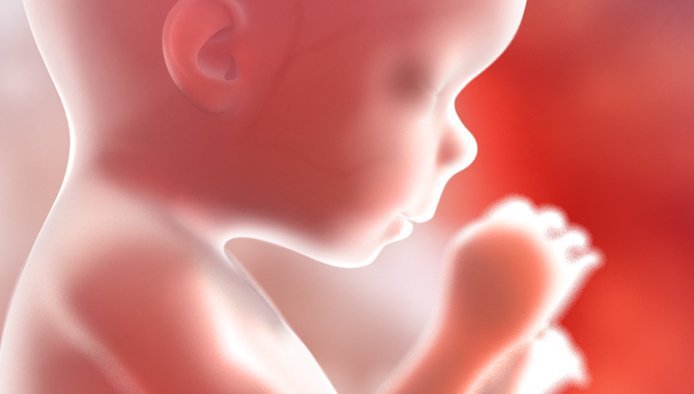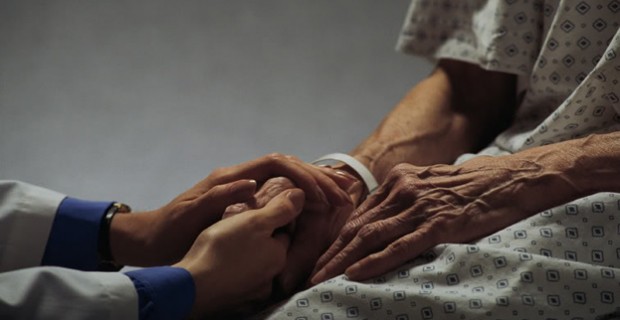Strictly speaking, there is no such science as “Catholic Bioethics” just as there is no such thing as “Catholic Baseball,” “Catholic Dentistry,” “Catholic Garbage Collection,” or “Catholic Plumbing.” Catholics do these activities, but they are not based upon divine revelation. Bioethics is a species of the science of ethics concerned especially about the beginning and ending of bodily life as well as the morality of certain medical procedures during a person’s life. It uses reason to understand what kinds of activity done by doctors are in accord with human dignity and flourishing, and what kinds are only apparently so and actually undermine, mutilate or destroy the goods of human beings.
Now there are many issues which human reason unaided by divine revelation cannot know that should be part of the underlying principles of bioethics. Pure reason does not know that the human person’s soul is immediately created by God nor does it know that human beings are meant to become completely fulfilled in a next life by the beatific vision. Again, reason does not understand why human beings do not achieve happiness in this life and why it is next to impossible to grow and develop in a life of virtue. Reason would seem to prefer as its prime principle that virtue has its own punishment and feelings should often trump what is reasonable and proportionate, notwithstanding the objections of Aristotean or Thomistic philosophers.
The field of bioethics of the Catholic philosopher is really medical moral theology, a science that includes the medical aspects of the human body, analyzed by the philosopher and the scientists, but also seen in the light of revelation. It is from revelation that the moral theologian learns that the human soul is immediately created by God; that man is created in the image and likeness of the Triune God; and, that some principles guiding his science are not knowable by the light of reason alone unaided by faith. Revelation also implies that a Spirit-led teacher of human action, called the sacred Magisterium of the Catholic Church, needs to intervene and correct erroneous opinions from the time to time lest theologians come to erroneous conclusions and mislead ordinary faithful. For the Catholic, good human action is in some way a profession of faith.
Also, medical moral theology is a sub-species of the overall social teaching of the Church. One of its many principles or conclusions that guides the social teaching of the Church is the radical idea that human beings are stewards of material creation that includes their bodies. They do not have dominion over them such that we can do anything they desire with themselves. Many scientists do not accept this principle because they believe in their fundamental autonomy in research. “What can be done should be done” seems to be their motto.
However, all that we humans possess is borrowed being and we need to accept the limits over material things including our bodies. The way someone treats his or someone else’s body indicates what he or she thinks about human persons in general. Those in charge of the common welfare of the community or the state must also take into consideration what is the condition of the physical health of humans and provide norms or guidelines for human flourishing in this life, such as getting flu shots and the like. To do that, those commissioned by the state or by the diocese need to be the watchdogs of human health and to understand certain principles of this subject or medical moral theology. Without knowledge of the solid practical conclusions of medical moral theology, the notion of adequate health care systems becomes problematic based solely on patient or hospital autonomy to desire anything they want.
To get at the conclusions of a sound moral approach to medicine, The Catechism of the Catholic Church has garnered certain key ideas. First and foremost is the following:
Human life is sacred because from its beginning it involves the creative action of God and it remains forever in a special relationship with the Creator, who is its sole end. God alone is the Lord of life from its beginning until its end: no one can under any circumstance claim for himself the right directly to destroy an innocent human being. [CCC, no. 2258]
What this means in practice is that no one has the right to directly take away innocent human life or even directly hasten its death for any reason whatsoever. Hence, abortion and euthanasia are gravely wrong means to solve a medical problem. Moreover, any procedure that causes human life to die more quickly in order to help someone else by retrieving its organs is also gravely wrong. Furthermore, the Church teaches there are limitations on how one treats embryos as well:
One must hold as licit procedures carried out on the human embryo which respect the life and integrity of the embryo and do not involve disproportionate risks for it, but are directed toward its healing the improvement of its condition of health, or its individual survival. It is immoral to produce human embryos intended for exploitation as disposable biological material. “Certain attempts to influence chromosomic or genetic inheritance are not therapeutic but are aimed at producing human beings selected according to sex or other predetermined qualities. Such manipulations are contrary to the personal dignity of the human being and his integrity and identity” which are unique and unrepeatable. [CCC, no. 2275]
Finally, when a person is dying, letting them die when the situation is hopeless is reasonable so long as they have care (food and water, unless this cause undue burdens to the patient):
Discontinuing medical procedures that are burdensome, dangerous, extraordinary, or disproportionate to the expected outcome can be legitimate; it is the refusal of “over-zealous” treatment. Here one does not will to cause death; one’s inability to impede it is merely accepted. The decisions should be made by the patient if he is competent and able or, if not, by those legally entitled to act for the patient, whose reasonable will and legitimate interests must always be respected. [CCC, no. 2278]
Even if death is thought imminent, the ordinary care owed to a sick person cannot be legitimately interrupted. The use of painkillers to alleviate the sufferings of the dying, even at the risk of shortening their days, can be morally in conformity with human dignity if death is not willed as either an end or a means, but only foreseen and tolerated as inevitable. Palliative care is a special form of disinterested charity. As such it should be encouraged. [CCC, no. 2279]
These notions from the Catechism are just a beginning to help us understand what medical moral theology must attempt to do when guiding doctors and hospitals to live a Catholic understanding of sound medical procedure.




